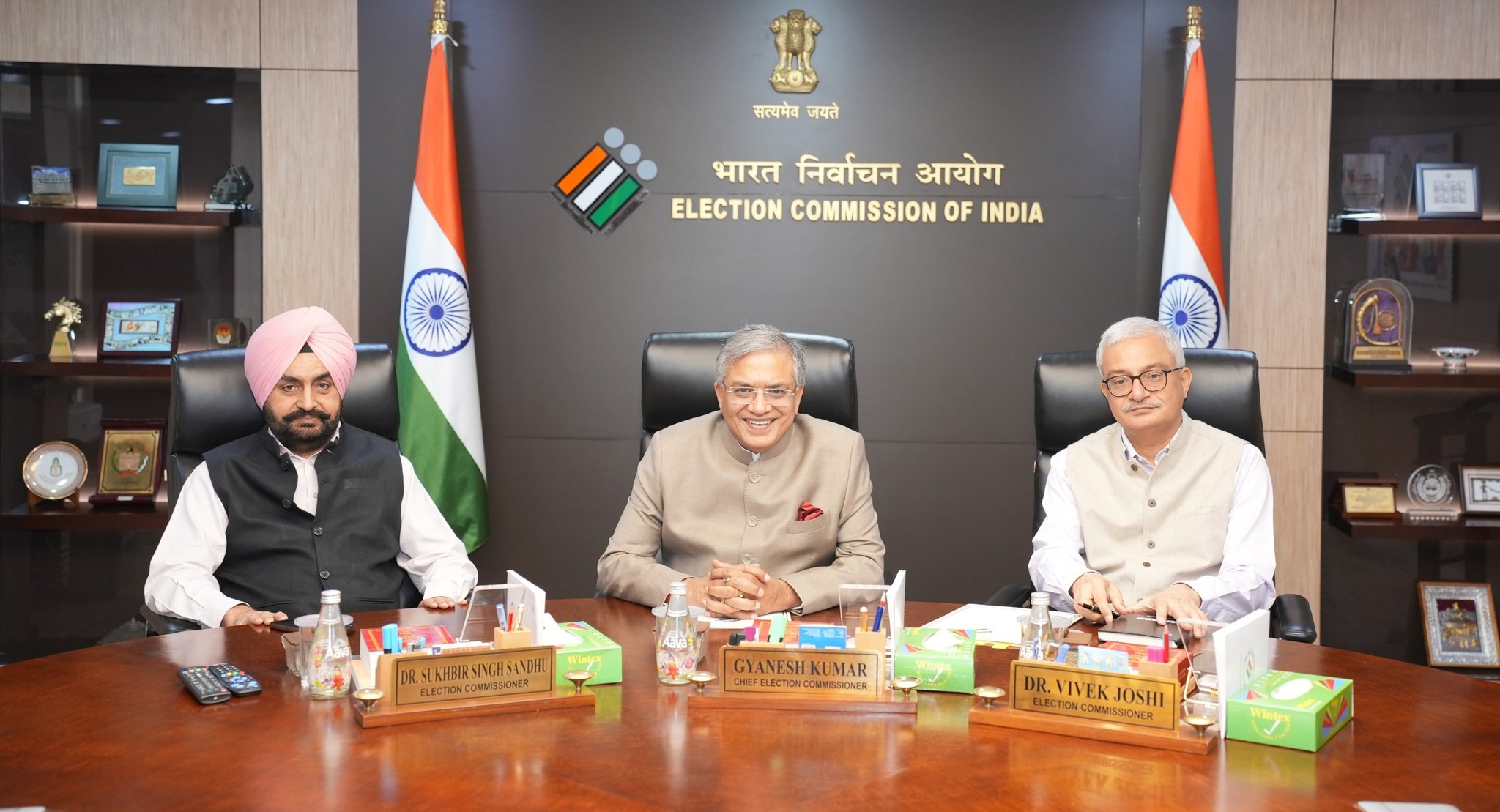
If a referee in a game of sports becomes a lapdog of one of the participants, will the game remain ‘free and fair’? A similar question is being posed to the Election Commission of India due to the manner in which it has been behaving over the last couple of years, particularly in the last few months. These questions have grown louder in the lead-up to the Bihar elections. Just three months before Bihar was set to undergo assembly elections, the Election Commission announced a surprising and contentious exercise called ‘Special Intensive Revision’ of voter rolls across the state, all within a matter of less than a month. Here is my Blog on the controversial exercise and questions around the Election Commission.
What is ‘SIR’ and why is it Problematic?
The Special Intensive Revision of the electoral rolls is essentially a . Article 21 of the Representation of the People’s Act authorises the EC to conduct a ‘special revision’ of the electoral roll at any time. But, the current one, as we all know, is a more ‘intensive’ exercise, with the last such exercise being held back in 2003. The ECI has said that there have been “large-scale additions and deletions” in Bihar’s electoral roll over the last 20 years because of urbanisation and massive migration out of the state.
This time, under the ‘SIR’ process, the voters have been divided into 3 groups. Those who are already on the 2003 voter list don’t need to do anything. They can just go to the BLO with their voter ID cards and get their IDs approved by showing an extract of the 2003 rolls. But those who are not on the 2003 rolls need to provide proof of date and place of their birth, and in some cases also of their parents. Now, this is exactly where the catch comes.
Out of a total of around 8 crore voters in the state, around 3 crore will have to submit a very elaborate enumeration form, and submit documents proving their place of birth. And…it’s Bihar we are talking about, the state that has consistently lagged behind in registering births (and other stuff too). In 2000, when the national average of birth registration was 56%, the number in Bihar stood at a meagre 3%, and similar has been the case afterwards.
The other and more important issue comes with the choice of documents ‘acceptable’ to the ECI. Out of the total of 11 documents, the main ones are Birth Certificate, Passport, Document issued by LIC/Post Office, ID card/Pension Order, Matriculation/Educational Certificate and Permanent Residence certificate. Other than these, options of SC/ST certificate, Forest Rights Certificate and Permanent Resident Certificate (or Domicile Certificates) also exist, but they don’t have any mention of the date or place of birth. Two other documents — the National Register of Citizens (NRC) and Family Register — do not even EXIST in Bihar. And, as you might have guessed by now, Aadhar, PAN and the Voter ID are NOT acceptable as proofs. But, interestingly, all the above ‘acceptable’ documents require an Aadhaar to register.

The BJP-JDU alliance is eyeing a record fifth straight term in power in Bihar (Photo: Hindustan)
Mischievous Intentions and Absurd Arguments
The whole exercise is just an extension of what the ECI has been doing for the past few years, doing everything except what it should: holding free and fair elections. There is not an iota of doubt that it is the poor, less educated and non-privileged people (mostly Muslims and Dalits) who will be at the receiving end of this exercise, and might have their names removed from the list. And if you’re smart enough, you know there is a strong and tempting possibility of it benefiting the ruling NDA. If you think it will stop at Bihar, you’re wrong, it will stretch its way to Bengal, Assam and in strong likelihood, the whole country. This is the government’s plan to implement NRC through the back door.
Bihar’s electorate has been pushed under a huge burden out of nowhere (Photo: The Hindu)
How ECI was made ‘toothless’
See, if you think the Election Commission has suddenly started behaving abruptly, you’re wrong. This has been a systematic process over the years. Many of you may not be familiar with Ashok Lavasa, India’s former Election Commissioner, who was known for his strong stance on free and fair elections. He made headlines when he dissented from the other two Election Commissioners in deciding whether Mr Modi had violated the Model Code of Conduct, while urging votes in the name of CRPF soldiers killed in the Pulwama attack. Lavasa was poised to assume the role of Chief Election Commissioner (CEC), but before that, he resigned abruptly (or was made to resign; the circumstances are unclear). This was followed by several raids at his house on some stupid allegations, for which he was cleared later. Interestingly, the same government that had so many issues with him also later nominated him for the Asian Development Bank.
Ever since him, the ECI has craved for a strong-neutral position holder. Just last year, the Supreme Court had ruled for the ECs being nominated by a 3-member committee comprising the Prime Minister, the Leader of Opposition and the Chief Justice. Beyond doubt, this was the best possible option to keep the appointments neutral and transparent. But, to ensure that doesn’t become the case, the government brought a bill replacing the CJI with a Union Minister (who was no other than Amit Shah). During the whole 2024 elections, Modi and his team spewed as much communal venom as possible, but drew little to no ire from the EC. Rajiv Kumar was succeeded by Gyanesh Kumar, and the two other ECs currently are Vivek Joshi and Sukhbir Singh Sandhu. Many of these ECs have worked closely with Amit Shah in the Home Ministry, so you can expect what ‘fairness’ they will show in their work.

The Election Commissioners ofIndia (Photo: ECI X)
Concerns in Delhi and Maharashtra
The results of the Maharashtra assembly elections last year came under a major controversy after the opposition, especially Lok Sabha LoP Rahul Gandhi, alleged an abnormal rise in the number of voters in the last 5 months before the polls. According to data, the number of voters in the state increased by 32.2 lakh voters between the 2019 Lok Sabha polls and the 2024 Lok Sabha polls, but surprisingly, it rose by 39.6 lakh voters in just 5 months from the 2024 Lok Sabha polls (June), and the 2024 assembly polls (November). The spike in the number of voters was even sharper in specific seats. Now, if the ECI has some valid explanation, it should say it clearly. But, so far, it has only behaved as if it doesn’t care.
A similar situation occurred in Delhi as well, where large-scale additions and deletions in the voter list resulted in close-margin victories on several key seats. The highest discrepancy was seen in the pivotal New Delhi seat (total voters decreased by 40,000), where Parvesh Verma triumphed over Kejriwal in a close fight. For a fact, over 50 new voter applications were made from his own residence, and he was openly distributing money to women. But none of these actions saw even a simple response from the ECI. If this is the state of the body holding elections, what can we even expect about the fairness of the elections?
All Eyes on Supreme Court
The case is currently in the top court, which has called the concerns of petitioners genuine, and asked the ECI to ‘consider’ taking Aadhar, Ration Card and Voter ID too as documents of proof. But, the thing is, ECI has only been asked to ‘consider’, so even if it refuses at the end, no one’s going to bat an eye. Also, looking at the record of our judiciary, I won’t be surprised, if the SC, after giving all the lecture on morality and democratic principles, eventually allows ECI to complete the ‘SIR’ process as it is doing.
While, ground reports emerging from Bihar continue to show how tedious a task it has been for the innocent electorate, the ECI and the government are spreading some ‘unconfirmed’ news through their so-called ‘sources’ (News came that some Nepalis and Bangladeshis have been found on voter rolls). Now, working in the media industry for these years, I know how easily any footpath-level garbage is served to the people in the name of news, citing ‘sources’
Now, I would like to make something very clear: illegal immigration is a serious issue, and the government has to worry about that. But, just citing that purpose, you can’t put all the 7 crore odd voters of a state under question, coercing them to prove their citizenship. If an entire system (both Centre and state, keeping in mind the NDA government in Bihar too) has failed to manage the border situation in Bangladesh, its costs can’t be borne by the innocent people of a backwards state, who might not have documents. Neither does ECI have the authority to grant or verify citizenship, nor can such an exercise be carried out in so much haste.
Ashok Lavasa rightly pointed out in his article that if NO document in the whole country qualifies someone as a citizen, then how can the onus of proving citizenship be put upon the voters? The ECI’s motto has always been to “leave no voter behind,” so even if one genuine voter is missing out, it needs to be called out and stopped. All this becomes even more serious in Bihar, because the total difference between the NDA-JDU alliance and RJD-Congress alliance in the 2020 elections was just 12,000 votes in the whole bloody state. So, you can understand that even a difference of one vote can make a huge difference in the results. Irrespective of how important the government makes the ‘SIR’ exercise sound like, it’s our duty as citizens that no innocent voter loses their franchise. The eyes are on the Supreme Court, which might hear the case tomorrow, till which the fate of this ‘Mother of Democracy’ hangs in the balance.

